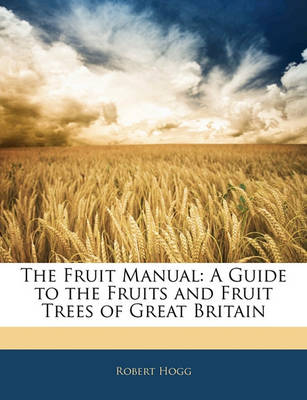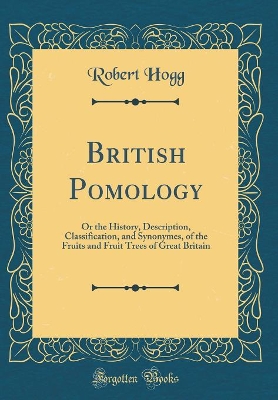Cambridge Library Collection - Botany and Horticulture
2 total works
Robert Hogg (1818-97) was a British nurseryman and an early secretary of the Royal Horticultural Society: a prize medal is named in his honour. Born in Berwickshire, Hogg trained in medicine at Edinburgh before following his father into fruit tree cultivation, and became joint editor of the Cottage Gardener, later the Journal of Horticulture. In 1851, he published The British Pomology (also reissued in this series): this work, on apples, was apparently intended as a study of British fruit trees, but no further volumes followed. Instead, in 1860, Hogg published this comprehensive catalogue of British fruit, which ran to five, increasingly extended, editions over the next twenty-five years. It became the standard reference work, and was even plagiarised in Scott's Orchardist: however Hogg sued and obtained an injunction preventing further sales. Hogg promoted systematic work in the Royal Horticultural Society and was instrumental in setting up its fruit committee.
Robert Hogg (1817-97), son of a Scots nurseryman, was destined for a career in medicine, but abandoned his studies to pursue horticulture. Employed by a famous London tree nursery, he travelled widely in Britain and Europe to study gardening practice. This work, first published in 1851, was intended to encourage a taste for the 'most important, most instructive, and intellectual branch of horticultural science' - the cultivation of fruit. (The book is subtitled 'The Apple', as though further volumes on other fruit were intended, but none appeared, though Hogg did publish The Fruit Manual (also reissued in this series) in 1860.) It lists and gives detailed descriptions, including drawings, of 401 apples in cultivation in Great Britain, and a further 541 of which Hogg had no direct knowledge. He provides classification lists by fruit colour, shape, seasonality and region - a fascinating resource for the history of horticulture and of food.

